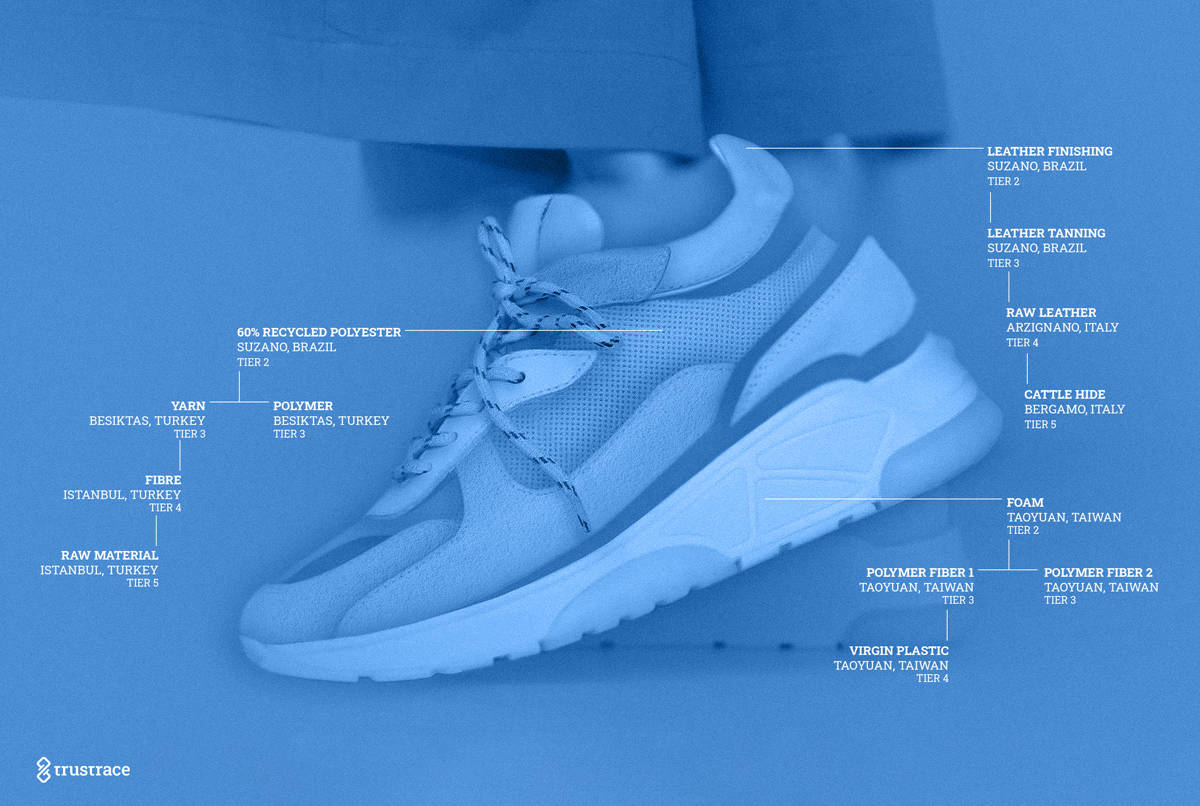TRUSTRACE STRENGTHENS TRACEABILITY SOLUTION FOR CERTIFIED MATERIAL COMPLIANCE FOR FASHION & APPAREL

TrusTrace Strengthens Traceability Solution for Certified Material Compliance for Fashion & Apparel
Keeping track of materials throughout the supply chain can be a real challenge, and is particularly important in an era of increasing consumer demand for sustainability and transparency. We all want to make sure our new pair of sneakers not only look and fit great, but that by buying them we didn’t contribute to polluting the oceans, encourage child labor, support a corrupt political regime, or any number of ethical dilemmas that can crop up along the way. Global greenwashing and unsubstantiated claims leaves brands and regulators scrambling to instill confidence among consumers that products are as sustainable as their makers’ claims.
TrusTrace is a global platform for product traceability and supply chain transparency within fashion and retail that today announced the launch of TrusTrace Certified Material Compliance, a one-stop solution that enables near real-time traceability at the material level.
The new solution allows fashion brands to capture data from supply chain transactions as products and materials move through the value chain. Finished goods then have traceability information already associated with them when they arrive at market, allowing fashion brands to easily tell the story of their products’ origins and material integrity to consumers, retailers, and regulators.
The solution includes a broad spectrum of requirements for material compliance including documenting the percentage of certified vs. non-certified material content, supporting different chain of custody models, and covering single- to multi component products.
Adidas is Early Adopter of TrusTrace Certified Material Compliance
Global sports brand Adidas is one of the first large companies to adopt TrusTrace Certified Material Compliance, after providing early input on its development, focusing on a solution that would integrate seamlessly with enterprise systems like PLM, Purchase Order System and Supplier Management systems to minimize the need for manual intervention. Being able to track materials in a standardized, digital and scalable way helps the company to create more transparency on its sustainability goals, including moving to 100% recycled polyester by 2024, and having 9 out of 10 of its articles featuring a sustainable technology, material, design or manufacturing method by 2025.
“As part of its commitment to sustainability, Adidas has worked with TrusTrace to gain more visibility into our complete supply chain down to the materials level,” said Katja Schreiber, Senior Vice President Sustainability at Adidas. “The information gleaned from TrusTrace Certified Material Compliance will help us to create even more transparency of our sustainability efforts.”
Near Real-time and Material Traceability is Becoming Pivotal for the Fashion Industry to Comply with Current and Upcoming Regulations
For the European market, the EU is considering regulatory initiatives such as requiring claims to be backed by common measurement methodologies, and France and Denmark have already crafted legislation on documentation requirements for ESG claims.
Amsterdam-based Fashion for Good, a platform for sustainable fashion innovation, focused on bringing the fashion ecosystem together through its innovation platform and acting as a convenor for change, is among many advocates of creating more standardization in the industry.
“Real-time, fiber-forward traceability facilitates industry-wide standardization of supply chain data, laying the foundation for accurate impact tracking, trustworthy certification and wastestream analytics for fibers, materials and products,” said Katrin Ley, Managing Director at Fashion for Good. “All of these factors play a major role in authenticating sustainability claims, enabling the accurate measuring, and ultimately empowering improvements of ESG metrics within the supply chain alongside facilitating the credible flow of impact data to meet legislative requirements at a product level. For brands, supply chain due diligence and sustainability strategies need material traceability, provided by reliable, digital platforms such as TrusTrace, to build data-informed visibility of supply chain journeys to truly transition to more sustainable practices.”


